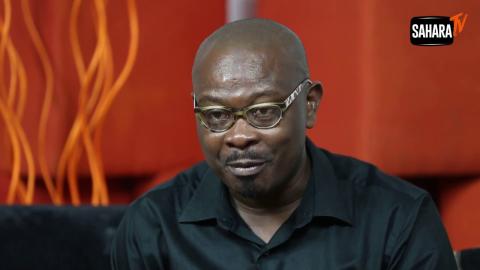
The lesson from June 12 for Nigerians is that they can unite. They can rise above ethnic and religious sentiments.They must disregard their ethnic and religious differences, focus on the things that unite them: bad governance and corruption which inflict poverty, insecurit and, deprivation.
The June12 1993 election in Nigeria was a remarkable turning point in the protracted, patriotic and courageous struggle by Nigerian people- led by democratic forces. I pay a glowing tribute to the patriotic, irrepressible and selfless leaders of the human orights and democracy movements including Nigerian students- in the days of NANS, who stood for the termination of prolonged and labyrinthine military autocracy under successive corrupt, deceptive and brutal regimes, from Buhari to Babangida to Abacha and then, Abdulsalam Abubakar who took over when Abacha died and inevitably conducted the 1999 general election that eventually brought an end to authoritarian military rule.
June 12 election witnessed the experimentation with the novel Option A4 electoral system introduced by Prof Humphrey Nwosu, who was the Chairman of the electoral management body at the time. Option A4 was an amalgam of both the secret and open ballot electoral systems.
But the most outstanding and significant lesson of that election was that it demonstrated the possibility of unity among Nigerians. Unity in democratic struggle against the common enemy and common adversity which then was military dictatorship.
The termination of military dictatorship was the rallying point which united Nigerians across religious, ethnic, sectarian and other mundane divides to vote for a Muslim-Muslim ticket. Such a development in a muti ethnic and multi religious and divided country was a significant milestone in Nigeria's quest to build a nation. Nigerians disregarded divisive, manipulative sentiments that put a wedge to their unity and progress and were resolutely united in their fight and resistance against the annulment of that election. They waged a vigorous and sustained struggle for the restoration of the mandate they collectively gave to Abiola but was stolen by the vicious Babangida junta. That struggle entailed a lot of sacrifices but Nigerians were undeterred by the vicious and repressive terror unleashed against them and the leaders of the democratic movement. Military tanks were rolled out and lives were lost. But the struggle continued until the military was forced to retreat to their barracks.

Vicious repressive tactics aimed at suppressing popular rebellion against military brutality culminated in the murder of Abiola in prison following his arrest and detention for his refusal to give up his fight to reclaim his mandate. Many democracy activists were arrested, detained, brutalized, tortured, maimed and/or killed. Many others were forced into exile. The same reactionary forces that murdered Abiola in prison also decided to do a balancing act by also killing Abacha barely a year later to bring an end to the struggle.
Not even the setting up of a contraption called interim government by Abacha, prior to his sudden demise, and his appointing Abiola's Yoruba ethnic kinsman, Ernest Shonekan, to head the interim government could deceive or assuage Nigerians in their stubborn quest for, and insistence on, the restoration of the illegally and criminally annulled popular mandate.
Abdulsalam Abubakar, who took over after the death of Abacha had to soon conduct the election that saw to the eventual restoration of democratic processes in Nigeria after nearly 17 years of unbroken military dictatorship.
So, essentially, June 12 symbolized the plausibility of the unity of Nigerians against a common enemy - bad, undemocratic and anti-people government
Today, 27 years after 'June 12', Nigerians are still saddled with incompetent and anti people government which has hampered progress and development. We have a government which, although, came through a semblance of democratic process but lacks all the essential elements and characteristics of a democratic government. Corruption, insecurity, lack of transparency and accountability, lack of respect for human rights, disrespect for court orders and subversion of the rule of law; repression by brutal security forces and lack of respect for separation of powers; undermining the independence of the judiciary and legislature. These are the trademarks of this clueless regime masquerading as democratic.
Nigerians need to understand that their politicians are not patriotic. They are self serving and not committed to the good of the greater majority. Politicians don't care about the people. Nigerians destiny is in their hands. Politicians fight for the people's vote and remember them only during elections when they exploit their impoverishment to buy their votes only to abandon them until the next electoral cycle. Politicians are united in corruption. That is why bills that will improve the lives of the people are not their priority. In the midst of their intra class and selfish struggle for power and resources, they always unite to quickly pass budgets after they have padded them to take care of their greed. They use ethnicity and religion to manipulate and keep Nigerians divided, at daggers drawn, fighting each and one another and to remain distracted while they continue to loot public funds fueling poverty which becomes a tool for them.
The lesson from June 12 for Nigerians is that they can unite. They can rise above ethnic and religious sentiments.They must disregard their ethnic and religious differences, focus on the things that unite them: bad governance and corruption which inflict poverty, insecurit and, deprivation. Nigerians must unite around these iniquities brought against them by their oppressors and exploiters and fight their common enemies-the corrupt people in government who steal their commonwealth, deny them of their humanity and use religion and ethnicity and other sectarian and mundane differences to manipulate them.
Okechukwu Nwanguma